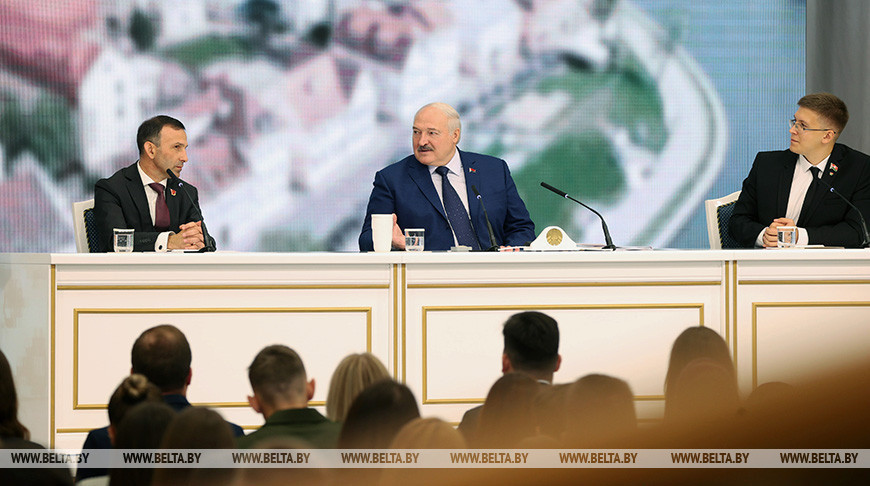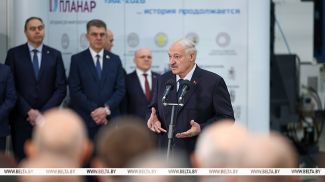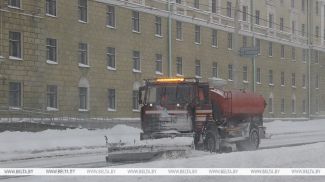
MINSK, 27 September (BelTA) – The idea of smart villages is worth considering, Belarusian President Aleksandr Lukashenko said at the Q&A session titled “Open Microphone with the President” with students of engineering and technical universities of Minsk on 27 September, BelTA has learned.
“It's simpler than a smart city. We will see a smart city becoming a reality in the next five-year period. A village is much smaller. You have developed a 'smart city' solution. Design a concept of a village and we will make it 'smart'. The people there are somewhat different, but nevertheless this idea is feasible. If you have such an idea and people who can implement it, let's do it,” Aleksandr Lukashenko said.
Students noted that in the long term, the development of smart villages can have an impact on the structure of the country, because agriculture is one of the mainstays of the Belarusian economy.
“I agree with you, I share this view. We need to decide what functions this smart village will have. Maybe it won't need some of those functions that a city has. This is a thing of the future. We have a peasant soul, our heart is in the countryside (we are kind, compassionate people, we are ready to share everything we have, we have a good sense of collectivism). There can be no Belarus, no country without the countryside. Moreover, the village today successfully feeds and clothes the city. Therefore, we pay a lot of attention to the development of rural communities, and use the most advanced technologies there. And it is easier to do this in the village, because a city is a city - hundreds of thousands of people – but the village is compact. Interesting people live there, they will be curious about it.”
A smart city concept has been developed in Belarus. It provides for introduction of advanced IT solutions in the city infrastructure that will eventually lead to the creation of a smart city. Such a concept should prioritize the comfort and convenience of residents. Digitalization is expected to make cities safer, more convenient, and easier to navigate through a broader use of modern solutions in housing and utility services, construction and territorial planning, transport infrastructure, healthcare, education, law enforcement and other areas.












